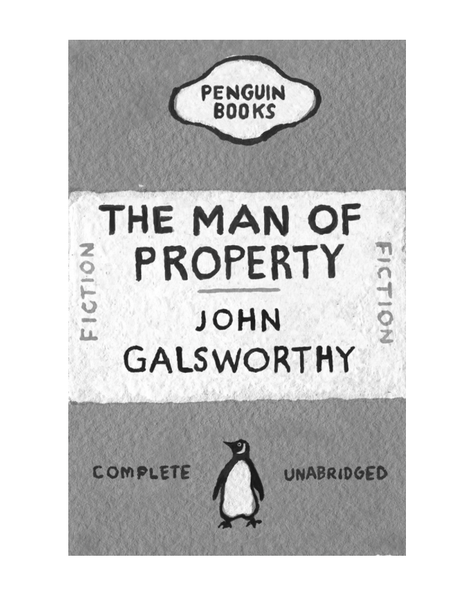Books & Culture
The Loneliness of the Page
Peter Orner’s latest is a somber, joyous exploration of the inherent loneliness of a writer

It’s hard to think of a book about books without calling to mind Walter Benjamin’s famous essay Unpacking My Library, in which the author states that “(t)o renew the old world — that is the collector’s deepest desire.” It’s as if Benjamin was thinking of Peter Orner’s newest.
In Am I Alone Here?, a somber, joyous contradiction of a second book, Peter Orner spends a lot of time in his garage, alone, surrounded by books. He reads, he thinks, he writes what he describes as ekphrasis — “art that attempts to describe other art.” Orner lavishes praise on his favorite short stories (and the occasional novel), the equivalent of a mixtape from a friend complete with exhaustive liner notes. But beyond loving criticism at the fore — sometimes hidden, often right on the surface — is a narrative of loss, regret, solitude. Observations tied to literature transcend to life in general; life shrinks from grandiose to garage-sized. The easy trap is trying to categorize the book to better understand it. A better strategy is to read, sift through the clues, and sit with them. In doing so, Orner’s work becomes all the more meaningful: things are not simple or easily tied up, but with thought and care, we can come together and help one another even if, as Benjamin suggests, the new world isn’t as palpable as the old.
Peter Orner is often quick to define Am I Alone Here by stating what it’s not. He meditates on his past and hunts for this or that volume in his garage library to reinforce some point, a needed ballast following the loss of his remote father and the dissolution of his marriage:
“Often, I’m less prone to having an actual experience than I am to relating what I’m experiencing to something, anything I’ve read. It’s as if I don’t quite exist in real time.”
He doesn’t have experiences, but approximations of them, informed by what he’s read. The lack of connection he feels with the outside world results in retreat, a need to find solace in books. Yet despite his many references, this is no simple memoir, or even a book of literary criticism — it’s an “anti-manifesto,” lacking the rigid structure that can be found especially in works of fiction, the novels and short stories he so adores.
But in reading Am I Alone Here, we quickly find that Orner contradicts himself — and cleverly. In addition to discussing his deep love of the volumes that surround him, the introduction ruminates on the death of Orner’s father and the unraveling of his marriage, prepping readers for these topics to recur, woven into the fabric of his essays on books and authors. But as part one begins — titled “Sometimes I Believe We Are Being Tested” — the second essay contains no mention of authors or books at all, instead focusing on a distant uncle who once frequented family gatherings but didn’t disappear so much as fade from view. After this brief digression, Orner resumes his discussion of books and authors, each containing a few koan-like lines, unlearned meditations.
The placement of the uncle essay’s importance becomes apparent during a discussion Eudora Welty. Orner posits that “The Burning,” the second story in Welty’s collection The Bride Of the Innisfallen, is her favorite, and an example of a theory of Orner’s invention he claims extends to all collections, all authors: the most well-known stories are placed first in anthologies; favorites are placed second. A second story “comes closest to failure, and so the writer loves it all the more.” Each of the three main portions of Am I Alone Here? is so structured — talk of books falls to the side in favor of discussing his family. Positioning such essays in a collection that primarily revolves around books may seem an odd choice — especially when he draws overt attention to them by their placement, and discussion thereof — but he’s trying, at least. Too often, Orner says, “we can’t show what love feels like without embarrassment, so we avoid the attempt altogether.” Despite the fact that he feels like his bookless reminiscences teeter on the brink of failure, he’s working, processing, which makes him feel alive even as the work he produces is vulnerable.
It would be easy to see Orner’s contradiction as cleverness for its own sake. This isn’t the reason, though, that he denies a structure then goers out of his way to reveal one. As he mentions in one of his essays, “reading well, in my lonesome garage view, requires reading with generosity.” Throughout, the level of thought and care he heaps on his favorites demonstrates this generosity. To balance the equation, Orner expects a similar level of care from us, the readers — everything in his book is intentional, as the placement of his family-centric chapters demonstrate. By reading generously, by taking the time to consider the reasoning behind his statements and placements, Orner is attempting to duplicate the connection he feels to the books in his library, and the solace they provide. In reading generously, we pass the test in section one’s title.
The book’s title provides an additional clue to Orner’s method and purpose. In an essay about writers who disappear into exile, Orner says “the impulse to spread any and all news about oneself far and wide…has become soul-crushing. It makes me want to retreat to the garage with my… books and unfinished physical manuscripts. But maybe the fact is, I’m not all that good at being myself. Am I alone here?” With tweets and social media posts about writing threatening to supplant the writing itself, photos and hashtags become the aforementioned approximation of experience. Giving up and giving in to the din reduces the work down to soundbites, with clicks and hits supplanting the experience of reading. Orner knows this, burrowed deep in his garage.
But like the contradiction inherent in Orner’s ‘lack’ of structure, time and again the author cries out for connection. After the death of Colombian author Alvaro Mutis, Orner is despondent in his isolation: “Aren’t we perpetually, one way or another, trying to solve loneliness? The loneliness we feel? The loneliness we know is coming?” Books are a balm, another contradiction: we spend time buried in them, which is both time with someone — the author — and time alone, away from everyone. Orner reads in his garage, feeling deep connections with authors who themselves felt terribly isolated and detached.
The sorts of losses Orner has felt leave him pining for some sort of connection, some solution to the loneliness that he feels. Yet the quick fixes and easy solutions provided by the internet leave him feeling cold. So it’s reading and writing, with all of their snares and pitfalls, which sustain him, even as he takes risks. Not everything he writes he writes will be successful, but “the failure of certain stories to say what they are trying to say is the source of their inexplicable force.” It’s the clawing, the attempt to articulate what can’t easily be said that’s worth something. It’s tempting to give up, to curl into a ball, but this isn’t what our departed loved ones would want. They’d want us to go on rather than withdraw (thus drawing attention to ourselves):
“At some point, much as we talk a big game about needing to go it alone, we can’t help but be pulled to the window, to the noise and to the voices.”
This, then, is the crux. We can’t do it alone, even though we sometimes wish that we can, say that we can. Orner states that author Mavis Gallant “understood that mostly what we humans do is daydream, that while we’re going about the business of our lives in one direction, we’re daydreaming it away in another.” Life is inconsistent, a big contradiction. Why should a book about life — and death — be any different?

The kind of careful reading prized by Orner reinforces all this. As he says early on, “If we can’t overcome (losses) ourselves, the very least we can do is recognize that we aren’t the only ones out here trying to get by.” By thinking, analyzing –by caring — we can keep trying to get by. Together. As Orner states, “sometimes we need, in whatever way we can muster, to share out burdens. And a reader, a stranger — you reading this — somehow you make the weight a little easier to carry.” It might not sound like much, but it’s something different than a retreat, or Benjamin’s renewal of the old. It’s an insistence that we forge on.









